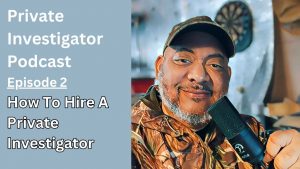In the world of private investigation, having the right skills can make all the difference between success and failure. Whether you’re just starting out or looking to enhance your expertise, mastering these essential skills is crucial for any private investigator (PI). Here’s a comprehensive look at the top skills every PI should master.
Download our Free: Private Investigator Career Guide.
1. Analytical Thinking
Why It’s Important: Analytical thinking allows private investigators to dissect complex information, identify patterns, and draw logical conclusions. This skill is vital for solving cases efficiently and effectively.
How to Develop It: Practice analyzing different types of data, such as financial records, phone logs, and surveillance footage. Engage in activities that challenge your critical thinking, such as puzzles and strategy games.
2. Surveillance Techniques
Why It’s Important: Surveillance is a core aspect of private investigation. Mastering surveillance techniques ensures you can gather evidence without being detected, which is crucial for many types of cases, including infidelity investigations and insurance fraud.
How to Develop It: Learn about different surveillance methods, such as stationary and mobile surveillance. Practice using surveillance equipment, including cameras and GPS trackers. Consider enrolling in a specialized surveillance training course for hands-on experience.
3. Communication Skills
Why It’s Important: Effective communication is essential for interviewing witnesses, interacting with clients, and writing clear, concise reports. Good communication skills help you gather accurate information and present your findings professionally.
How to Develop It: Hone your verbal and written communication skills through practice. Take courses in public speaking and report writing. Role-play interviews with friends or colleagues to improve your interviewing techniques.
4. Attention to Detail
Why It’s Important: Paying attention to detail is critical in private investigation. Small details can often lead to significant breakthroughs in a case. Missing these details can result in inaccurate conclusions or missed opportunities.
How to Develop It: Practice meticulous record-keeping and review your work regularly to identify any overlooked details. Engage in activities that require focus and precision, such as reading fine print and observing your surroundings closely.
5. Technical Proficiency
Why It’s Important: In today’s digital age, technical proficiency is essential for conducting investigations. This includes using databases, online research tools, and digital forensics software to gather and analyze information.
How to Develop It: Stay updated on the latest investigative tools and technologies. Take courses in digital forensics and cybersecurity. Practice using different software and online research methods to become proficient in technical aspects of investigation.
6. Discretion and Ethics
Why It’s Important: Maintaining discretion and adhering to ethical standards are crucial for building trust with clients and conducting lawful investigations. Ethical conduct ensures that your methods and findings are credible and can be used in legal proceedings.
How to Develop It: Familiarize yourself with the legal and ethical guidelines governing private investigations. Always respect privacy laws and client confidentiality. Join professional associations to stay informed about industry standards and best practices.
7. Problem-Solving Skills
Why It’s Important: Private investigators often face complex and unique challenges. Strong problem-solving skills enable you to develop creative solutions and adapt to changing circumstances during an investigation.
How to Develop It: Engage in activities that challenge your problem-solving abilities, such as escape rooms and logic puzzles. Analyze past cases to identify successful strategies and learn from any mistakes. Continuously seek out new challenges to refine your problem-solving skills.
Conclusion
Mastering these essential skills can significantly enhance your effectiveness and success as a private investigator. Whether you’re conducting surveillance, analyzing data, or communicating with clients, having a strong skill set will help you navigate the complexities of the job and achieve your investigative goals.
Ready to take your skills to the next level? Check out our comprehensive eBook, “How to Become a Private Investigator,” and our Private Investigator Training Course to get started on your path to becoming a top PI.

5 Risks of Hiring A Private Investigator: What You Need to Know
What are the risks of hiring a private investigator? Hiring a private investigator can help you find out important information. But, there are some risks

Top Skills Every Private Investigator Should Master
In the world of private investigation, having the right skills can make all the difference between success and failure. Whether you’re just starting out or

How To Become A Private Investigator: Your Guide to Starting a Detective Career
Have You Considered a Career in Private Investigation? If you’re intrigued by the thrill of uncovering the truth, have a keen eye for detail, and

How To Hire A Private Investigator
Private Investigator Podcast Episode 2: How To Hire A Private Investigator https://youtu.be/mki23fkJR3c How to hire a private investigator?

What Do I Do To Stay Alert While On Surveillance For Long Periods of Time
Private Investigator Tips Staying alert during long surveillance operations can be challenging. My name is Lance and I am a Sacramento private investigator. Here are

What Kind of Schooling Do You Need To Become A Private Investigator
Private Investigator Educational Requirements Unmasking the Truth: Your Guide to Becoming a Private Investigator Have you ever been captivated by the intrigue of uncovering hidden